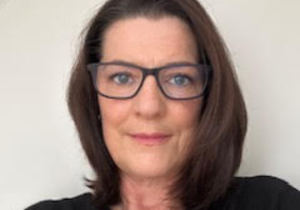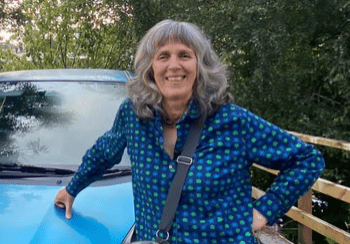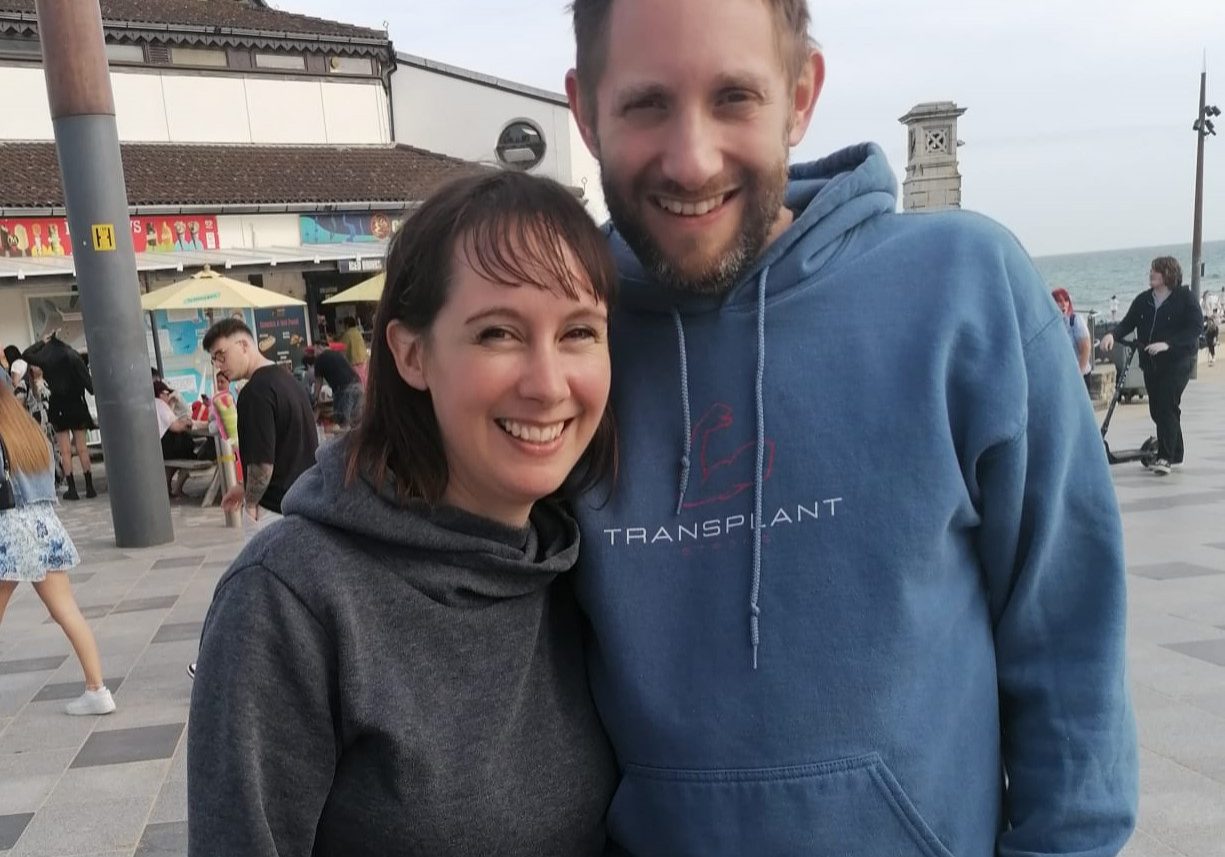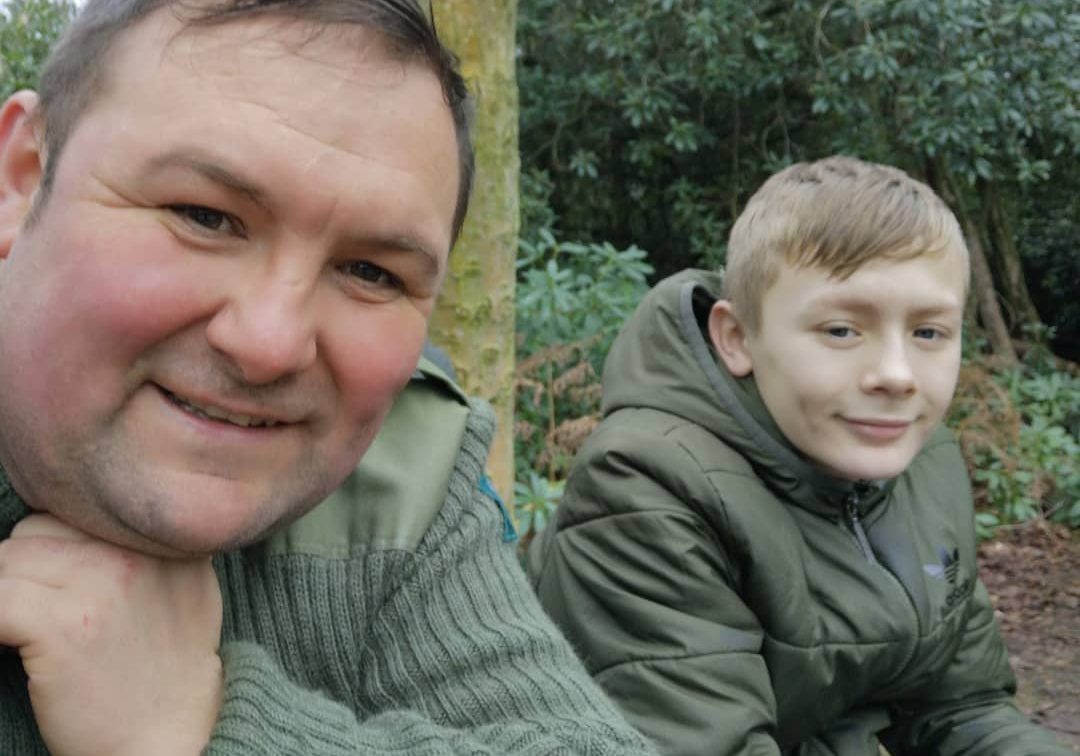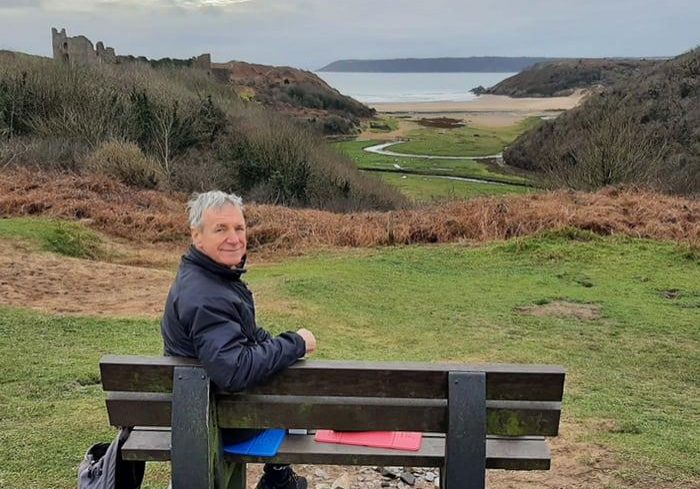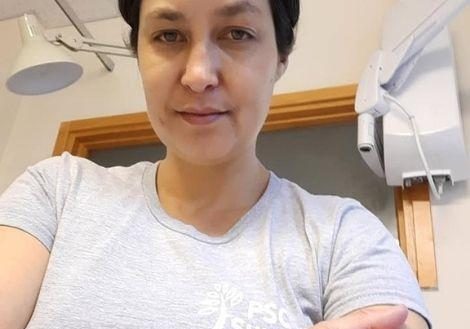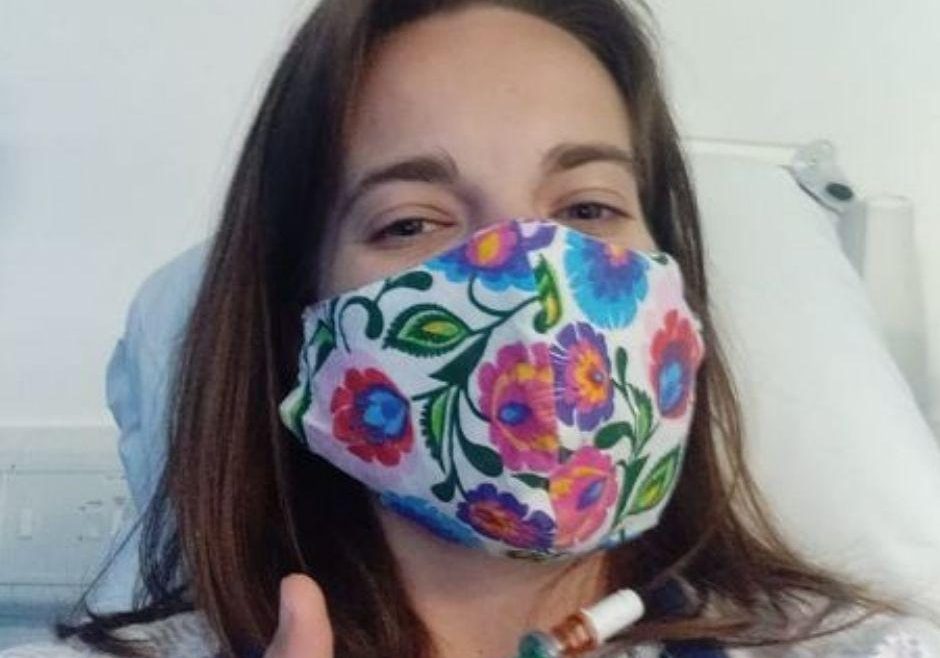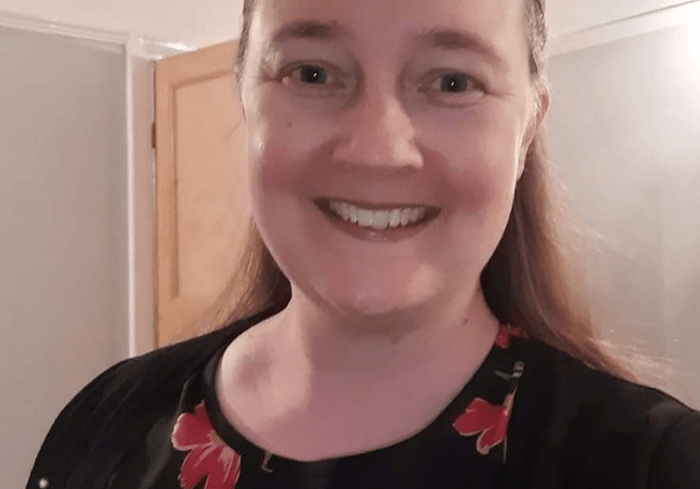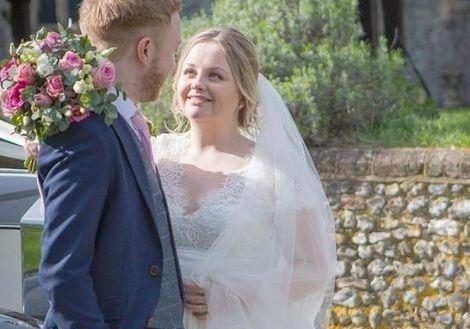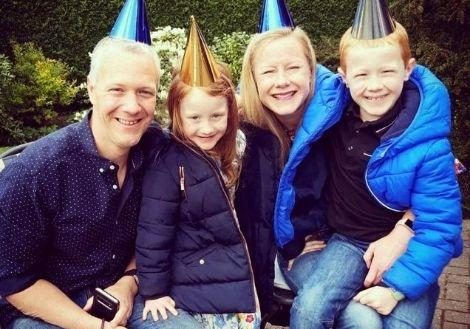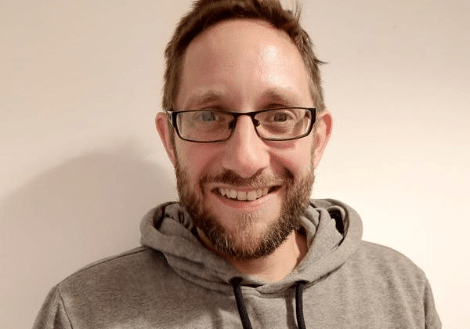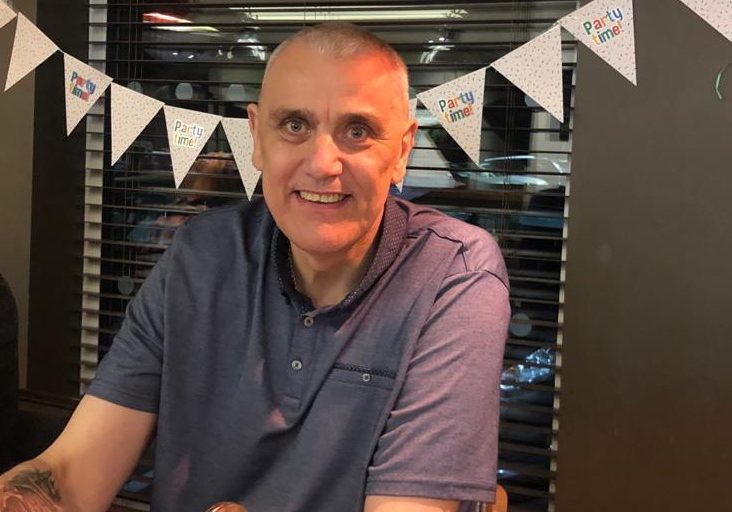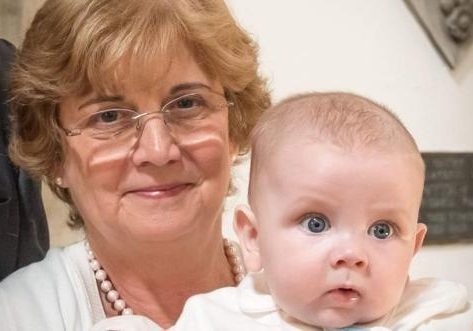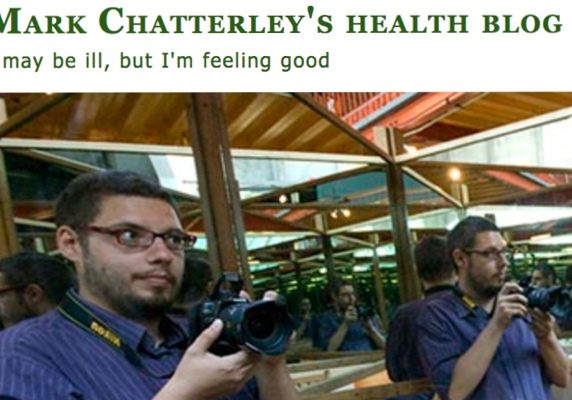Abigail
Abigail was diagnosed with PSC and AIH in her early 20s
I was itchy - especially on my feet at night
I was diagnosed with PSC in 2018, when I was 22 years old. My story is a bit long winded, and a bit of a shock! I’d always been reasonably healthy, except for a few things like chickenpox at 16 (which knocked me for six) and glandular fever at 18. I remember visiting my GP surgery and complaining of a pain in my upper abdomen and exhaustion. They confirmed via a blood test that I had glandular fever. Around this time, I began studying a course called Operating Department Practice. I spent time travelling to university and back most days and I spent the rest of my time on placement in hospital operating theatres. I thought my exhaustion was due to the demand of the course but it became worse.
I graduated and was so lucky to get a job from one of the placements I loved. I adored my job - I spent most days as an Anaesthetic Practitioner and helped pop patients off to sleep for their operations, or getting them ‘scrubbed’ for surgery. Other days I provided one-to-one care to patients waking up from surgery. Of course, the job was tiring, the days were long and I’d often finish late but my love for the job always motivated me.
In April 2018 I began doing a lot of overtime and after my ‘list’ had finished one Saturday, I actually fell asleep in the coffee room! I began feeling extremely nauseous every day and had a bitter taste in my mouth, so I revisited my GP and saw a nurse practitioner who didn't really show any compassion towards my struggle. She agreed to run some blood tests and I rang a week later and was told that a few of my Liver Function Tests (LFTs) were out of range. Due to working in a hospital I was able to ask some of my doctor colleagues what this could mean. A few of them mentioned that I could have gallstones. I’ve seen many patients have their gallbladders taken out and be cured from their symptoms, so at worst I thought it could be that.
A couple of weeks later, my bloods had continued to rise and my GP agreed it was likely either something that would resolve on its own or a gallbladder scan would help, so I was put on a waiting list for a scan. I told her how unwell I was feeling – I was sweating constantly and I was itchy - especially on my feet at night. She started mentioning that it would be good to get tested for Hepatitis A,B,C,D,E etc. and I was quite frightened! She said it was possible that in my working environment I could have got a needle stick injury, or could have come into contact with contaminated fluid etc. I’d had the appropriate vaccinations during university but some things are not covered. So, more bloods were sent off and I just awaited the results to hopefully find a cause.

I'm amazed that I didn't see myself getting that poorly
Around a week later, I was invited to a BBQ. This day is quite a blur for me now but I remember feeling very hungry and then not being able to eat one piece of food. My knuckles and hands throbbed and my throat was sore. I became very sleepy and my friends saw me fall asleep on the table - despite being sober! When I got home I went to bed and despite it being around 24 degrees outside, I was shivering and had my heater on. I spent the next day in and out of sleep and only ate a few grapes. That night, my parents took me to A&E as I wasn't urinating and was fevering badly. My heart rate was 165 and I was admitted straight away and diagnosed with sepsis. I was shocked - as a healthcare professional I am amazed that I didn't see myself getting that poorly. I was given a mixture of antibiotics and admitted to the surgical ward. I was given a provisional diagnosis of cholecystitis (gallbladder infection). One doctor on call thought he had the wrong patient when he visited, as he assumed from my blood results that I was a ’70 year old alcoholic with a liver that’s packing up’ (you get used to that stigma).
I spent a few weeks in this hospital on various IV antibiotics and had numerous allergic reactions. One looked like I had full burns, it closed my eyes and my lips were so swollen. I had a few ultrasound scans here and these showed that my gallbladder wasn't working, so I thought we’d found the answer. Additionally, I had to have an endoscopic ultrasound. I cried with happiness when the sedation wore off after this, because they told me they found the answer. My gallbladder was apparently filled with stones and they believed there was a blockage. I finally had an answer and was told that I could be discharged but would need to return for an emergency outpatient appointment to remove my gallbladder.

I felt a sense of relief
Around a week later I returned to work, despite feeling poorly. I believe this day saved my life. I was on anaesthetics for a general surgical list, with a surgeon visiting from a different nearby university hospital. He was amazing. He noticed my yellow eyes and I told him what had happened, he looked at my blood results and that night he booked me a bed at his hospital. The next day, all the investigations were repeated and I became increasingly unwell. I met a surgeon who was incredible. He decided that he wanted to take my gallbladder out but said that if it looked ok, he would take some liver biopsies to hopefully yield some answers. I ended up on strong antibiotics called meropenem before this, as I was so infected. At this point, my alkaline phosphatase was hovering around 2200.
The day of surgery was surreal for me, I was having surgery where my work placement was but I felt safe and hopeful. The operation took much longer than expected. I went down at 11am and didn't return to the ward until later that evening. I was devastated to hear that my gallbladder was fine – once they removed it, they cut it open and inside there were zero stones. My liver, however, was something they'd never seen before. It was covered in little tumours and my consultant had to call a liver professor in to look at it. They ended up taking multiple biopsies. Due to being malnourished and so poorly for so long, my immune system had taken a toll and my lungs were suffering badly. I ended up with fluid building up in my lungs and a suspected pulmonary embolism.
The next couple of weeks were spent recovering on the liver ward, where I had continuous antibiotics until my biopsy result came back. In July 2018, I was told I had PSC. Despite being told I had a rare incurable disease, I felt a sense of relief. That day was very bittersweet because it meant I could finally be given a treatment plan. I was started on prednisolone (40mg), ursodeoxycholic acid and few other things to help and I was discharged. I spent the next few months at home, rebuilding my strength after losing 16kg. The steroids worked amazingly for me and around October of that year, I was lucky enough to be able to taper off them and simply have blood tests to monitor me. The only problem was that I suffered a blood clot, so I had to inject blood thinners into my tummy every day for 6 weeks.

Somehow, my liver had now also developed another disease
Fast forward to Spring 2019, I began to experience denial that I had ever been ill. I wanted to be ‘normal’ and I pretended that I’d never been ill and actually believed they'd made a mistake like the previous hospital had. I began cancelling my appointments until May, when visiting Durdle Door, I had a classic ‘Abi moment’ and somehow rolled 100ft down the cliff. Luckily I came away with just stripping the skin on the lower half of my leg. I needed antibiotics and had to have it washed out, but in the next week I became quite unwell. I was feeling very sick, was unable to eat, I was sweating and became very confused quite moody. I was readmitted to hospital and found out I had developed sepsis again.
After having normal blood tests for months, they were now very ‘deranged’ and I had also sustained a kidney injury. My alk phos was already climbing way above the 1000 mark and my bilirubin was 150. I spent the summer of 2019 in hospital again. The steroids had stopped working and they believed my body had become immune to them. I had scans and it was evident that my liver function was decreasing quickly. They began talking about the possibility of a transplant which was hard to comprehend at the age of 23 but the days were such a blur then. I had a NG tube to feed me, as I couldn't stop losing weight and I had a PICC line because my veins were collapsing. In the end, it was decided that I needed another liver biopsy to see what was happening.
I had my liver biopsy (twice as they couldn't get enough the first time!) and received my results a week later. Somehow, my liver had now also developed another disease - autoimmune hepatitis. So my official diagnosis is primary sclerosing cholangitis with an overlap of autoimmune hepatitis. This meant they could now treat the AIH, so I was put on budesonide - another steroid and also an immunosuppressant - azathioprine. It took a short while but my liver responded well, until I had a bad reaction to the azathioprine. I now take mercaptopurine which is a form of oral chemotherapy, so it can make me feel rubbish. It does give me an awful rash if I come into contact with the sun as well!
I have an incredible consultant at my hospital, the whole team have always been amazing. My consultant took over my care in 2019 and not only is he incredible at treating the physical illness, he is also very supportive emotionally too, for me and my family.
Just before Christmas in 2019, we attempted to wean me off of the steroids - I had a wedding dress to fit into! Unfortunately my LFTs began deteriorating and I developed cholangitis again. Since then we've attempted to do it again a couple of times but I've still not managed to come off of the steroids. Last month I had another episode of cholangitis, so I was put on the highest dose of steroids and also an increase in my immunosuppressant. It's tough because I've gained weight and found that it does affect self-esteem and mood. I struggle with terrible insomnia and the steroids often mean I miss a full night's sleep, which can affect your mental health, but I do know how lucky I am to have a diagnosis to treat and an amazing liver team.

It's part of me and I want to help others
Having chronic liver disease has changed my life. I am no longer the young and very independent girl I was, but I feel I am more appreciative now. It has brought me closer to my family again and it gave me the courage to create the opportunity to meet my now husband! It has been tough in relation to work because my occupational health doctor stated I was unable to practice around people in January 2020, due to my immune system. My employers have been amazing and have allowed me to help with some admin in an office but I do miss my job. I used to work full time but now only work part time. I was also asked to begin shielding in March 2020 due to COVID-19, so I left work on March the 15th and haven’t been able to go back since! It's been a very surreal time. I got married in March but because of COVID-19, our wedding reception was cancelled the night before and so was our honeymoon.
Being poorly has also caused me to have acute episodes of cholangitis, which occur quickly and it’s meant I have missed out on things. I had to miss out on going to the Isle of Wight festival and last September we had to cancel our holiday to Spain as I was unable to fly.
PSC and AIH are difficult to explain to the average person who assumes any liver disease is alcohol related. Some days I become very frustrated that I cannot do what I used to do or what people my age are doing. I have a severe lung disease as well which does affect this too. I often become nauseous and vomit a lot, I occasionally have pain and when I'm having an ‘attack’, the pain in my back and right shoulder blade is immense.
To anyone who has recently been diagnosed, please don’t be afraid. Don’t panic and don’t use Google. I’d say it is helpful to read published papers online but try to make sure it’s from a place of sound knowledge! I can't explain how helpful the PSC Support group on Facebook has been. In December 2019 I travelled to London with my partner for the PSC Information Day and it was lovely. We were able to hear from specialists and other people with the PSC and I feel proud to be part of the community.
I am 24 and I drive, I work in a job that I love, and although I’m currently unable to practice, it’s only temporary and I will be able to soon. I have a lovely home with my deaf cat, I have amazing support and I feel lucky to know others that may go through the same sort of things as me. I am lucky that I was able to get married the day before lockdown and I'm optimistic about my health for the future. I understand that I will most likely need a liver transplant one day and I do struggle with that, more because I think of the emotional side of the donor’s family, but I am absolutely passionate about organ donation and cannot believe that in the space of two years my whole life has changed and I now have to think about that almost daily. Strangely, I wouldn't change this. It's part of me and I want to help others who may struggle going through it.
Cholangitis attacks can happen in anyone with PSC. It's important to be able to recognise the signs and know what to do if you suspect you have acute cholangitis.

